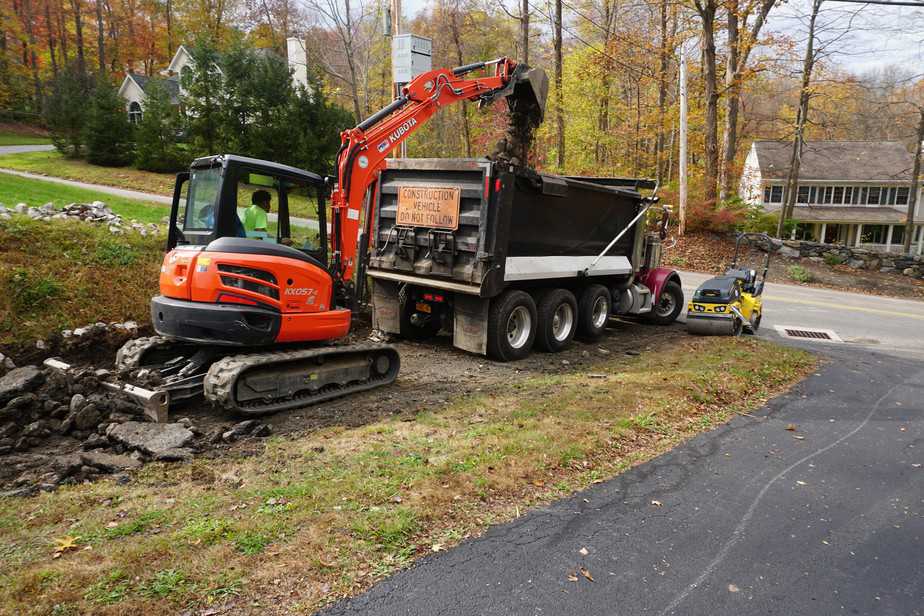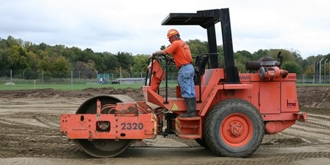Dump Truck Companies in Ohio - Dependable Dump Truck Services Throughout Ohio
Dump Truck Companies in Ohio - Dependable Dump Truck Services Throughout Ohio
Blog Article
Comprehensive Excavation Approaches: Grasping the Fundamentals for Success
The cautious preparation, accurate implementation, and meticulous attention to detail required in excavation projects demand an extensive technique that encompasses different essential facets. The real mastery lies not merely in recognizing these principles however in perfectly integrating them to navigate the intricacies of excavation tasks with skill.
Comprehending Excavation Task Planning

The first stage of any excavation project is the planning stage, where essential choices are made that can dramatically impact the result of the task. Understanding the project timeline, budget plan, and range constraints is crucial for producing a thorough excavation strategy that ensures the task's success.
One key facet of excavation task preparation is the growth of an in-depth timeline that outlines the sequence of deadlines, turning points, and tasks. By meticulously considering all these aspects throughout the preparation phase, excavation projects can be carried out successfully and efficiently, leading to successful end results - septic ohio.
Dirt Evaluation and Site Assessment
Performing complete soil analysis and website assessment is a crucial step in the prep work stage of any kind of excavation job. Dirt evaluation entails figuring out the composition, framework, and buildings of the soil at the excavation site. This details is critical for comprehending the dirt's bearing capacity, moisture material, and possibility for disintegration, which are essential factors in determining the excavation approaches and tools needed for the job.
Site evaluation surpasses dirt analysis and includes a more comprehensive evaluation of the overall site conditions. This assessment consists of determining any kind of prospective risks, such as underground utilities, environmental issues, or unsteady surface, that could impact the excavation procedure. By thoroughly reviewing the site, task supervisors can establish effective excavation strategies that prioritize safety, effectiveness, and environmental management.
Utilizing advanced technologies like ground-penetrating radar, dirt sampling, and drone studies can improve the accuracy and efficiency of dirt evaluation and website evaluation. Spending time and sources in these initial steps can ultimately conserve time and prevent expensive delays or complications throughout the excavation process.
Tools Selection and Use
Reliable excavation jobs depend heavily on calculated tools option and utilization to make sure optimum performance and efficiency. Selecting the ideal equipment for the work is important in optimizing efficiency and decreasing downtime. Factors such as the type of soil, deepness of excavation, and job extent play a considerable role in identifying the most ideal equipment for the job at hand.

Along with picking the proper tools, proper utilization is key to job success. Operators has to be educated to deal with the devices securely and effectively - lancaster trenching. Normal maintenance checks and prompt repair work help avoid break downs and guarantee consistent performance throughout the task
Security Measures and Rules Compliance
In the world of excavation jobs, prioritizing precaution and compliance with laws is vital to guaranteeing a safe and legally audio functional atmosphere. Safety steps include a variety of techniques, including performing extensive site evaluations, carrying out proper signs and barriers, and providing ample security training for all employees associated with the excavation process. company website Adherence to guidelines, such as OSHA requirements in the USA, makes sure that the excavation project meets the essential criteria to shield workers, onlookers, and the surrounding environment.

Monitoring Development and Adjusting Strategies
Exactly how can project managers efficiently track the improvement of excavation jobs and adjust their methods appropriately to enhance outcomes? Monitoring progression is crucial for making certain that excavation jobs remain on track and satisfy due dates.

Verdict
In conclusion, mastering the basics of detailed excavation methods is important for the success of any type of task. By understanding task planning, evaluating soil and website problems, selecting appropriate equipment, abiding with safety and security guidelines, and keeping an eye on progression, job managers can make sure a smooth and effective excavation procedure. Executing these methods will certainly result in successful outcomes and decrease prospective risks or problems throughout the excavation project.
The first phase of any excavation job is the preparation phase, where crucial choices are made that can considerably influence the result of the task. Understanding the project range, budget plan, and timeline constraints is important for producing a detailed excavation plan that makes sure the project's success.
Just how can predict managers effectively track the improvement of excavation jobs and adapt their methods accordingly to enhance end results? By very closely monitoring development and being willing to adapt techniques, project supervisors can improve the total success of excavation tasks.
By comprehending job planning, evaluating dirt and website conditions, picking ideal equipment, complying with safety guidelines, and checking development, job managers can ensure a effective and smooth excavation process.
Report this page